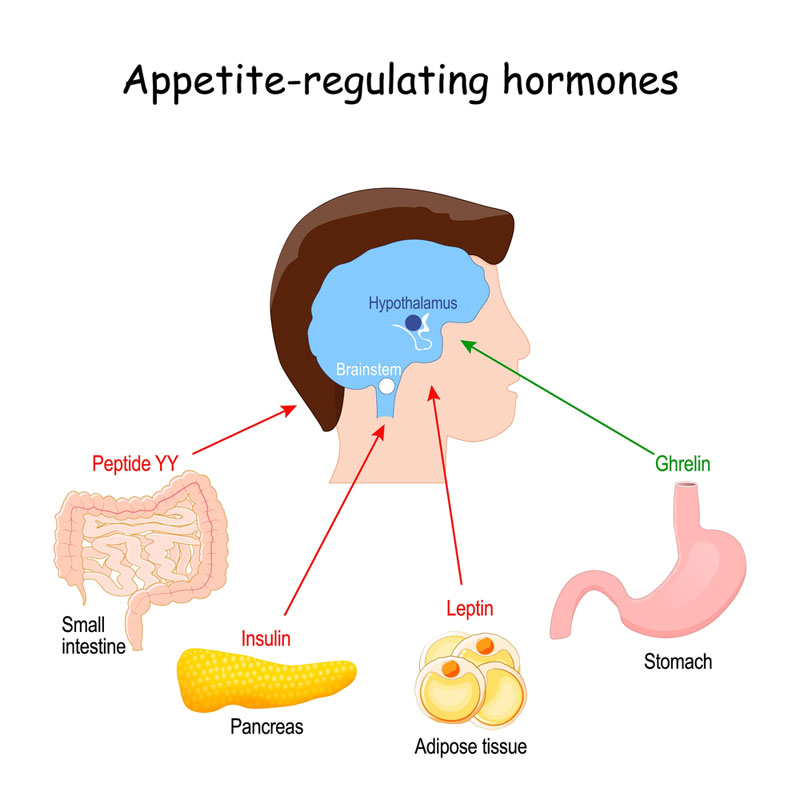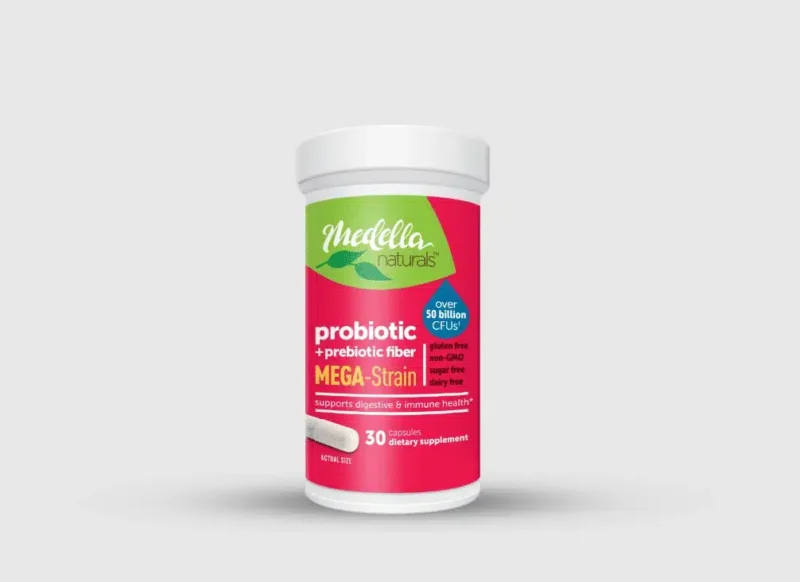Researchers and health enthusiasts have paid significant attention to the relationship between gut health and our overall well-being in recent years. One fascinating area of study is the role of probiotics in weight loss. Probiotics are living microorganisms, commonly known as “good bacteria,” that can offer several health benefits when consumed in sufficient amounts.
Although they are most widely associated with digestive health, recent studies indicate that probiotics also significantly impact weight management. In today’s blog, I will delve into the intriguing world of probiotics’ weight loss study and explore their potential role in shedding those extra pounds.
Does Probiotics Benefits For Weight Loss?
Probiotics benefit for weight loss in a few ways. They improve gut health by balancing the gut microbiome, positively impacting metabolism and fat storage. Certain strains of probiotics may help regulate appetite and reduce inflammation, which are crucial factors in weight management. Additionally, a healthier gut can enhance the body’s ability to absorb nutrients and regulate blood sugar levels, further supporting weight loss efforts. However, it’s important to note that probiotics should be part of a broader health and diet plan for effective weight loss.
What Are Probiotics?
Before we discuss the connection between probiotics and weight loss, it’s essential to understand what probiotics are and how they function in the gut. Probiotics are beneficial bacteria in our gastrointestinal tract, mainly in the colon. These microorganisms help maintain a balanced gut flora and contribute to various bodily functions, including digestion, nutrient absorption, and immune system support.
There are various Probiotics food sources, such as yogurt, kefir, sauerkraut, kimchi, and other fermented products. They are also available in the form of dietary supplements.
The Gut Microbiome and Weight Regulation
The gut microbiome refers to the vast ecosystem of microorganisms in our digestive tract. It comprises trillions of bacteria, viruses, and fungi, collectively interacting and influencing our health in numerous ways. Recent research has revealed a strong link between the composition of the gut microbiome and weight regulation.
Research has shown that individuals with a diverse and balanced gut microbiome tend to have a healthier body weight than those with less varied or imbalanced gut flora. A healthy gut microbiome can help prevent obesity, improve insulin sensitivity, and regulate metabolism.
Ways Probiotics Help In Weight Management
Many individuals have turned to probiotics as a potential solution for effective weight management. Emerging research suggests probiotics benefit weight loss by influencing gut microbiota composition and function.
Regulation of Appetite

One mechanism by which probiotics may influence weight loss is through the regulation of appetite. Certain strains of probiotics have been found to produce short-chain fatty acids (SCFAs) in the gut. These SCFAs can signal the brain to reduce appetite, leading to minimized food intake and weight loss.
Improved Digestion

Probiotics play a crucial role in the digestion and absorption of nutrients. When your digestive system functions optimally, your body can extract nutrients more efficiently from food. This can lead to fullness and satisfaction, reducing the temptation to overeat or snack excessively.
Metabolism Enhancement

Research has shown that certain strains of probiotics can enhance the body’s metabolism and improve calorie-burning efficiency, leading to weight loss when combined with a balanced diet and regular exercise.
Reduction of Inflammation
Chronic inflammation in the body is often associated with weight gain and obesity. Probiotics can help reduce inflammation in the gut by maintaining a healthy balance of bacteria. This anti-inflammatory effect may indirectly contribute to weight loss by promoting overall well-being.
Regulation of Fat Storage
Emerging research suggests probiotics can influence how the body stores and processes fat. They may help prevent the accumulation of excess fat by promoting fat breakdown and inhibiting fat cell growth.
Promising Probiotic Strains for Weight Loss
Several specific probiotic strains have shown promise in aiding weight loss efforts. These strains include:
- a) Lactobacillus gasseri: This probiotic strain has garnered attention for its potential to reduce abdominal fat and promote weight loss.
- b) Lactobacillus rhamnosus: Known for its role in appetite regulation, L. rhamnosus may help individuals consume fewer calories and make healthier food choices.
- c) Bifidobacterium breve: Research suggests that B. breve may enhance metabolism and improve body composition.
- d) Lactobacillus fermentum: This strain has shown potential in shedding extra pounds and improving insulin sensitivity.
It’s important to note that the effectiveness of probiotics can vary from person to person, and not all probiotic supplements contain the same strains or concentrations.
At Medella Springs we offer probiotics supplements with cranberry and prebiotics strains that not only help to regulate your digestive system but also support your vaginal and urinary tract.
Tips To Incorporating Probiotics into Your Weight Loss Plan
If you’re interested in harnessing the potential benefits of probiotics for weight loss, here are some practical tips on how to incorporate them into your daily routine:
Dietary Sources: Start by including probiotic-rich foods in your diet. Yogurt, kefir, sauerkraut, kimchi, and miso are excellent choices. These foods can be enjoyed as snacks, added to smoothies, or incorporated into meals.
Probiotic Supplements: Consider taking a probiotic supplement, especially if you have specific weight loss goals. Ensure the supplement contains strains that support weight management and follow the recommended dosage.
Prebiotic Foods: Include prebiotic-rich foods like garlic, onions, leeks, and asparagus to nourish the beneficial bacteria in your gut.
Balanced Diet: Probiotics are not a magic solution for weight loss. Combine probiotic consumption with a balanced diet rich in fruits, vegetables, whole grains, lean proteins, and healthy fats for the best results.
Regular Exercise: Physical activity is crucial to any weight loss planpair probiotics with regular exercise to optimize your results. Combine probiotics and prebiotics for a healthy gut, along with regular exercise.
Consult a Professional: Before adding something new to your diet or starting a new supplement, consult a healthcare provider or registered dietitian. These professionals can provide guidance and recommendations tailored to your needs.
Conclusion
While probiotics are not a standalone solution for weight loss, the evidence suggests they can support achieving and maintaining a healthy weight. The intricate relationship between gut health, the microbiome, and weight regulation is a fascinating area of research that continues to evolve.
Incorporating probiotics into your daily routine, a balanced diet, and regular exercise may contribute to your weight loss efforts. However, individual responses can vary, so your approach must be patient and consistent. Remember that desired weight is best achieved through a holistic lifestyle prioritizing overall health and well-being.
Frequently Asked Questions
How Long Does It Take To See Weight Loss Results From Probiotics?
Results can vary. Some people may notice changes within a few weeks, while others might take a few months. Consistency and overall lifestyle choices also play a significant role.
Are There Any Side Effects Of Taking Probiotics For Weight Loss?
Probiotics are generally safe, but some people may experience mild side effects like bloating, gas, or digestive discomfort, especially when taking them.
Are Probiotic Supplements Regulated?
In many countries, medications are more strictly regulated than probiotic supplements. It’s important to choose high-quality products from reputable manufacturers like Medella.

